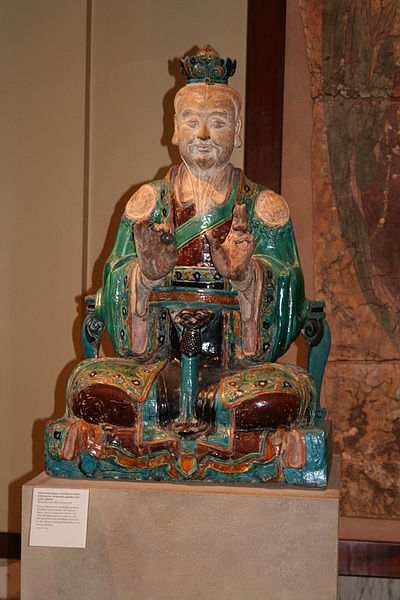Mozi was a Chinese philosopher, logician and essayist who founded the school of Mohism during the Hundred Schools of Thought period. The ancient text Mozi contains material ascribed to him and his followers.
The Mohists were experts at building fortifications and siege defenses
Confucian philosopher Mencius was one of several critics of Mozi, in part because Mozi's philosophy was believed to lack filial piety.
A page from the Mozi
Chinese philosophy originates in the Spring and Autumn period and Warring States period, during a period known as the "Hundred Schools of Thought", which was characterized by significant intellectual and cultural developments. Although much of Chinese philosophy begun in the Warring States period, elements of Chinese philosophy have existed for several thousand years. Some can be found in the I Ching, an ancient compendium of divination, which dates back to at least 672 BCE.
Yin and Yang symbol with the bagua symbols paved in a clearing outside of Nanning City, Guangxi province, China
Kong Fuzi (Latin: Confucius)
Chinese glazed stoneware statue of a Daoist deity, from the Ming dynasty, 16th century
The Sakyamuni Buddha, by artist Zhang Shengwen, 1173–1176 CE, Song dynasty







